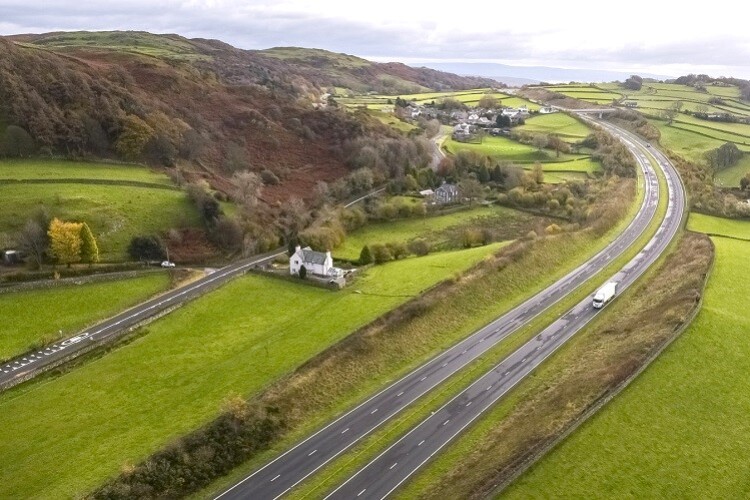As the nation moves to zero tailpipe emission vehicles, Highways England plans to cut carbon from the construction and maintenance of the roads on which they travel.
Highways England plans to reach net zero for its own corporate operations by 2030, with the help of three million trees that it intends to get planted. Replacing 70% of its road lighting with LEDs by 2027 will also help.
By 2040 its maintenance and construction emissions will be net zero, according to the plan.
And by 2050 all vehicles on its roads will be net zero carbon, it says.
One of the biggest challenges is removing the embedded carbon from construction materials. Highways England has committed to publishing a plan – a zero carbon 2040 roadmap – for cement, concrete and asphalt by June 2022. The Lower Thames Crossing scheme will be a key project to test low carbon innovation.
It also plans to ramp up electric vehicle charging infrastructure and sometime before the end of 2023 will produce a ‘blueprint’ on how this will happen.
Acting chief executive Nick Harris said: “Highways England recognises the threat of climate change and the risks it poses for us all. That’s why we’re pledging to take effective action to take carbon out of roads.”
.png)
Transport minister Rachel Maclean said: “We know that transport is the biggest emitter of carbon emissions, which is why I’m pleased to see that Highways England are setting out a roadmap which will clean up our air as we build back greener.”
Highways England’s plan follows the UK government’s transport decarbonisation plan and the 2015 Paris Agreement climate change treaty.
Civil engineering contractors appear to be fully behind the programme. Alasdair Reisner, chief executive of Civil Engineering Contractors Association (CECA), said: “Our members recognise their responsibilities to protect current and future generations from the impact of climate change. How we build and maintain our roads naturally plays a key role in meeting net zero goals. Roads form a critical backbone of the UK economy, supporting not just our personal journeys, but contributing substantially to economic growth.
“As an industry we must recognise what good looks like, understand where it’s going and always challenge our thinking, in order to deliver sustainable infrastructure for the long term.”
Highways England’s Net Zero Highways Plan was produced with the help of outside consultants, including WSP. The external team was led by David Symons, WSP’s UK director of sustainability, and James Peet, carbon management lead.
David Symons said: “Highways England has a fantastic opportunity to lead our transition to a net zero economy. Most UK travel is by road today and this will still be the case in 2050, even with strong investment in active travel and public transport. Highways England’s strategy will help deliver fossil free car and truck travel by 2050 as well as catalysing zero carbon construction in line with the Committee on Climate Change’s recommendations.”
Highways England's plan for net zero highways can be found at highwaysengland.co.uk/netzerohighways
Got a story? Email news@theconstructionindex.co.uk



